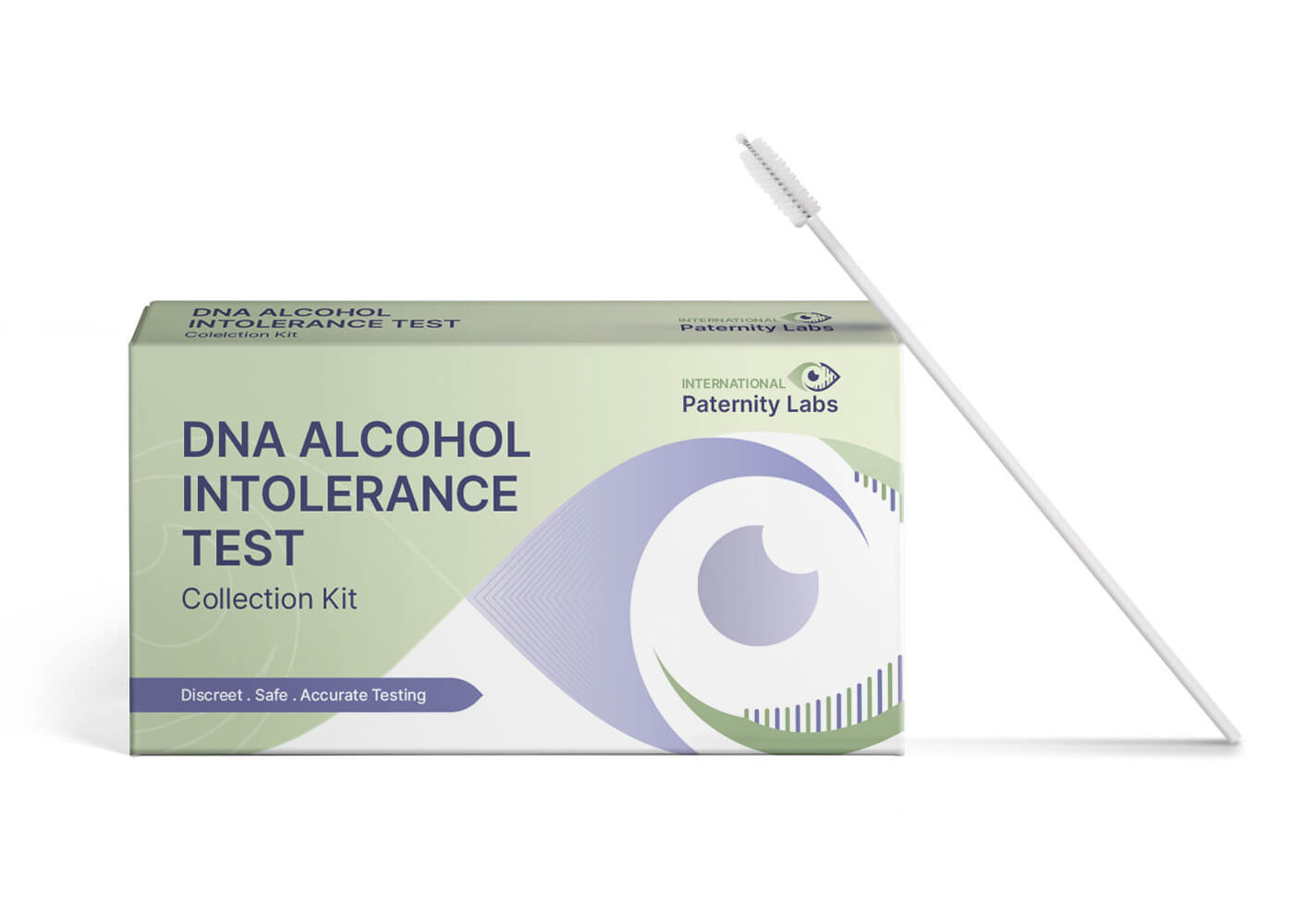DNA Alcohol Intolerance Test
Discover whether you possess genetic variants that heighten your susceptibility to health complications associated with alcohol consumption.
- Simple buccal swab sample collection
- Discreet, Safe and Accurate
- Includes all laboratory fees
$149.00
DNA Tests

Order Your Confidential Home DNA Test Online!
About this test
Description
The body clears the majority of the chemical ethanol, found in alcoholic drinks, through a two-step process that involves two enzymes. The first step involves alcohol dehydrogenase (ADH), which converts ethanol to acetaldehyde, a toxic chemical. However, acetaldehyde is quickly broken down to acetate by aldehyde dehydrogenase (ALDH) in the second step of alcohol metabolism. The final product, acetate, can be easily broken down to carbon dioxide and water.
However, individuals with genetic variants in the alcohol metabolism pathway may generate acetaldehyde too quickly or be unable to eliminate it fast enough, resulting in a dangerous buildup of acetaldehyde in the body even when consuming moderate amounts of alcohol.
A simple mouth swab can determine whether an individual has inherited DNA changes that affect their ability to metabolize alcohol, which may increase their risk of serious health complications.
Technical Specifications
Individuals with genetic variants in the alcohol metabolism pathway may either produce acetaldehyde too rapidly or struggle to eliminate it efficiently. This can result in the accumulation of toxic acetaldehyde in the body even when consuming moderate amounts of alcohol.
The genetic variants tested in this test include:
- ADH1B and ADH1C: These genes produce the ADH enzyme responsible for converting ethanol to acetaldehyde in the initial stage of alcohol metabolism. Variants in these genes increase ADH enzyme activity, leading to a buildup of acetaldehyde, even with moderate alcohol consumption.
- ALDH2: This gene is responsible for converting acetaldehyde to acetate in the second stage of alcohol metabolism. A common genetic variant in the ALDH2 gene can reduce the activity of this enzyme, causing a slower removal of toxic acetaldehyde from the body.
100% Confidentiality
As our client, your privacy is extremely important to us, and we hold all information provided us in strict confidentiality. We will never sell, resell or make available your personal, or financial information to other companies or organizations. You will only be contacted using the method you choose, to confirm your order or to discuss your case. All communication is in the strictest confidence, and for that reason, we require you to create a password that will restrict access to your case. In addition, our privacy policies that have been established in our laboratory and offices safeguard the security of your case.




